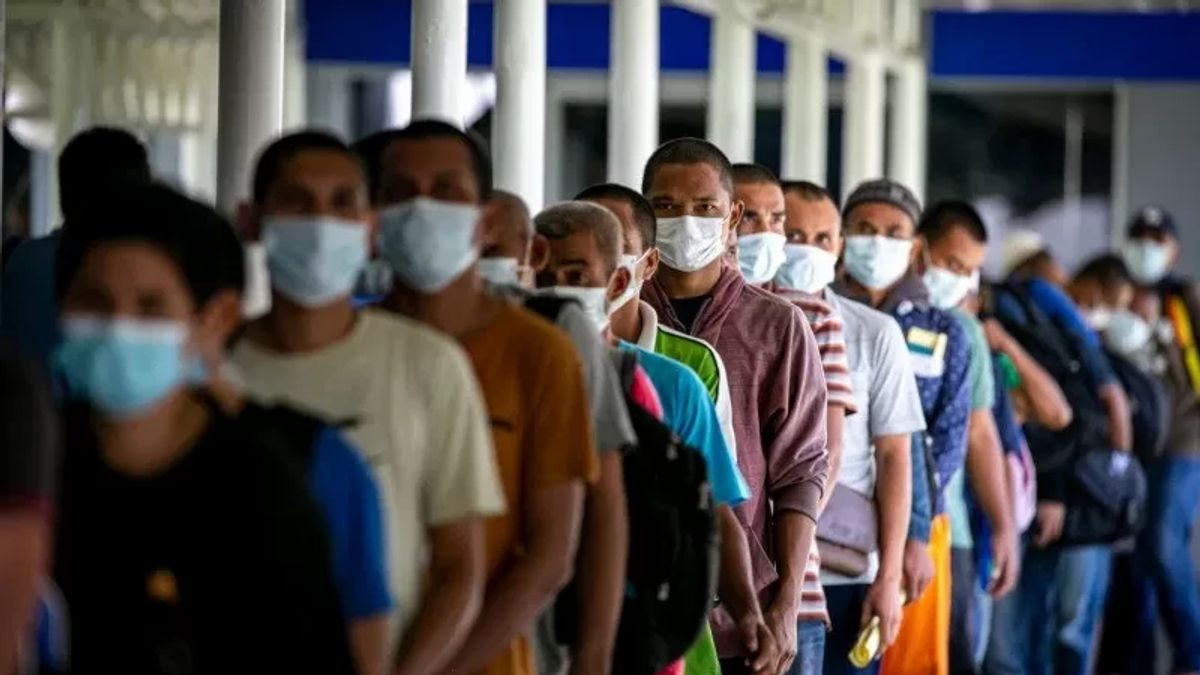NTB - The Provincial Government of West Nusa Tenggara (NTB) together with the Indonesian Migrant Workers Placement Company (PPPMI) will soon meet to discuss
There is a discourse that Indonesian migrant workers (PMI) working to Malaysia may bring their families. The NTB Manpower and Transmigration Office is scheduled to hold a meeting with PPPMI for the placement of Malaysia to discuss the proposal of the Governor of NTB Zulkieflimansyah.
"Later on Thursday (February 23) we will invite PPPMI to deploy Malaysia to discuss technically the Governor's proposal," said Head of the NTB Manpower and Transmigration Office, I Gede Putu Aryadi in Mataram, NTB, Monday, February 20, confiscated by Antara.
He said that his party is currently attending a coordination meeting (Rakor) with the Directorate General of Manpower Placement and Expansion of Employment Opportunities (Binapenta and PKK) at the Ministry of Manpower to discuss the departure of the PMI.
Because the Minister of Manpower (Menaker) Ida Fauziyah has responded positively to the proposal from the Governor of NTB submitted during the visit of Vice President Ma'ruf Amin to NTB some time ago.
Even the Minister of Manpower said that the idea of the need for the departure of the family PMI was a good thing that needed to be studied technically in the future.
"When the Minister visited the NTB Manpower Office with the Director General, the Minister had discussed at a brief meeting with us. Director General of Binapenta Suhartono and Director General of Binalavotas, Budi Hartawan asked to conduct a technical study, regarding the possibility to follow up on the Governor's proposal in the future," he explained.
According to him, basically, the government will conduct technical studies and coordination with related parties, including with placement companies in Malaysia to discuss opportunities to be able to carry out these proposals.
Previously, the Governor of NTB said that there were several advantages that could be obtained by sending the family's PMI pattern.
First, it can reduce the cost of PMI's daily needs abroad. Including the incoming communication costs being one of the biggest expenditures for PMIs when they are abroad, because those who participate in one family, the need for communication costs will decrease.
In addition, sending family PMIs can also reduce the potential for social and family problems for family members who are left behind. The reason is, from the data that there are many cases of stunting or stunting to malnutrition, it comes from PMI families who have been left out of work abroad.
"Many PMI children were entrusted to their grandparents. So that they did not get treatment and eventually triggered social and health cases," he said.
However, he continued, if the family's PMI delivery pattern can be applied, then a little bit will not be able to suppress the potential for these social and health problems to occur.
"Because children can remain under the supervision and care of their parents," he said.
The English, Chinese, Japanese, Arabic, and French versions are automatically generated by the AI. So there may still be inaccuracies in translating, please always see Indonesian as our main language. (system supported by DigitalSiber.id)













